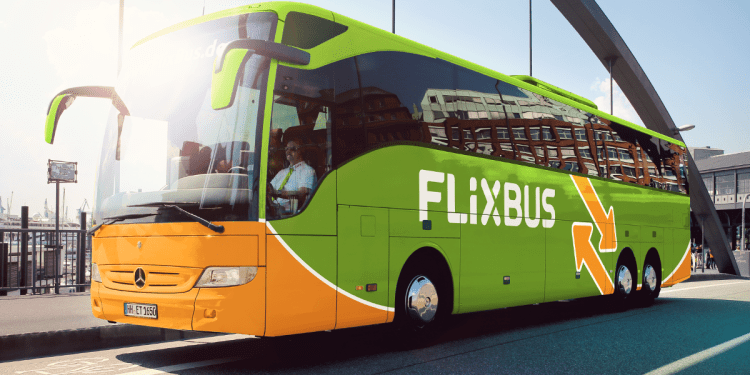Almost five years after launching in Germany, FlixBus is about to make its biggest leap, strategically and geographically, by launching its data-driven bus service in the United States.
The company announced today that it has begun serving a series of routes in the southwestern part of the country, operating out of Los Angeles for now. Locals will now get a chance to book rides on the lime-green and orange buses that have become ubiquitous on European roads.
Pierre Gourdain, managing director of FlixBus USA, acknowledged the risk the company was taking but was confident the conditions were ripe to reinvent bus travel in the U.S.
“It’s a market that we spent the most time analyzing since launching Flixbus,” he said. “We needed to know if the market was asking for this. And what we saw blew our mind.”
June 5th: The AI Audit in NYC
Join us next week in NYC to engage with top executive leaders, delving into strategies for auditing AI models to ensure fairness, optimal performance, and ethical compliance across diverse organizations. Secure your attendance for this exclusive invite-only event.
What they saw, according to Gourdain, was a younger population that is less and less interested in owning a car, and is increasingly embracing a present that uses lots of ridesharing and a future that promises autonomous vehicles. In Northern California, meanwhile, huge tech companies like Apple and Google are operating massive bus networks that are conditioning their employees to appreciate bus travel and want to be able to work during their commute.
In the short term, for those who want an affordable alternative to taking a plane, Flixbus wants to offer a more reliable and entertaining form of intercity travel.
“The new generation does not want to drive anymore,” Gourdin said. “We have heard it loud and clear. Driving time is not efficient time.”
The company partners with local bus companies that rebrand as FlixBus, letting the company handle the routing, branding, marketing, and booking. FlixBus has 300 bus partners throughout its 28 markets in Europe and will start with 6 partners in the U.S.
In the U.S., starting today, riders can book trips between destinations such as Los Angeles, Las Vegas, Phoenix, and San Diego. Tickets can be had for as low as 99 cents in some cases. The initial launch will offer 180 connections, but the company is hoping to expand that to 1,000 across the western part of the country by the end of 2018.
The company was founded in Germany by Jochen Engert, Daniel Krauss, and André Schwämmlein, with the goal of bringing modern ecommerce purchase and logistics to a rather traditional industry. A FlixBus today includes spacious seating, onboard entertainment, and Wi-Fi. The company uses the data it gathers from inquiries and rides to determine routes, stop times, and pricing. And it sells “CO2 Neutral” tickets that passengers can buy to offset their carbon footprint.
Back in Europe, the company has leveraged its model to expand into train travel as well. That move comes as European countries are in the process of deregulating their railways. Between trains and the U.S. expansion, FlixBus is making clear its ambitions are high.
“We need to change the image of riding a bus,” said Engert, FlixBus cofounder and managing director. “We’ve done this in Germany and Europe over the past few years. Riding a bus was just not cool. And now this is our challenge in the U.S.”

